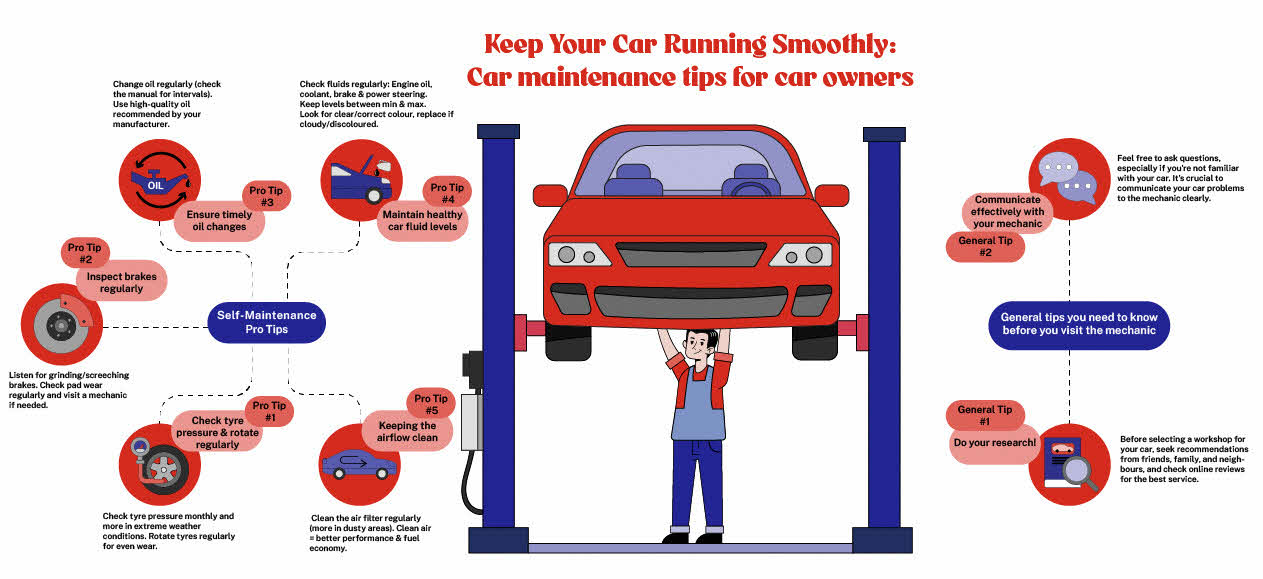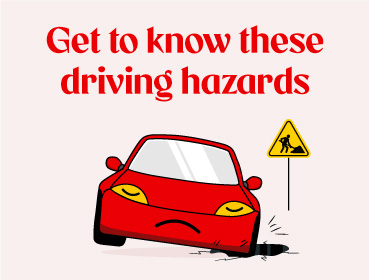Car maintenance and service tips for car owners
Discover everything you need to know about maintaining your car including pro car repair tips & valuable mechanic tips
Keep your car running smoothly: Car maintenance tips for Singaporean car owners

Owning a car in Singapore is a significant investment, especially in our current economic climate where the cost of living is steadily rising. This means saving money wherever possible is paramount, and car repairs can potentially be a major expense if you’re not careful.
Beyond just fixing mechanical issues, a visit to the mechanic is an opportunity to ensure the well-being of your vehicle in the long run. A well-maintained car ensures your safety on the road and helps you avoid hefty repair bills. However, not all mechanics are reliable so there are a few things you need to know about your car before you roll into the shop.
Here are some car service tips to help you develop a proactive approach to car maintenance, along with valuable mechanic tips to ensure you're making informed decisions when visiting a workshop.
General tips for effective car maintenance
Equipping yourself with the knowledge of cars can go a long way in saving money, while also making sure your car runs smoothly. Check out these general tips before you make your next visit to the workshop.
Pro tips for self-maintenance of your vehicle
While some car repairs require a professional’s touch, even beginners can tackle basic car care routines. These helpful pro car service tips will help you keep your vehicle running smoothly and extend its lifespan. Remember that for complex repairs or when your car reaches specific mileage milestones, it’s always best to consult a professional and follow your owner’s manual for manufacturer-recommended services.
Be car smart, save money: Essential maintenance tips for every driver
By following these simple car maintenance tips, you'll gain the knowledge and confidence to keep your car running smoothly and safely. Regular maintenance not only extends the lifespan of your vehicle but it can also help you avoid unexpected breakdowns. This translates into significant cost savings in the long run, allowing you to be a smarter car owner.
Remember, safe driving practices are just as important as car maintenance for a truly secure driving experience. Learn more about becoming a defensive driver with our informative guide on 5 tips behind the wheel.
Speaking of unexpected breakdowns, driving on the road entails its own risks such as road accidents. Ensure your peace of mind today and explore Great Eastern’s Drive and Save Plus car insurance. Safeguard your drive and protect yourself today.
Let us match you with a qualified financial representative
Our financial representative will answer any questions you may have about our products and planning.







